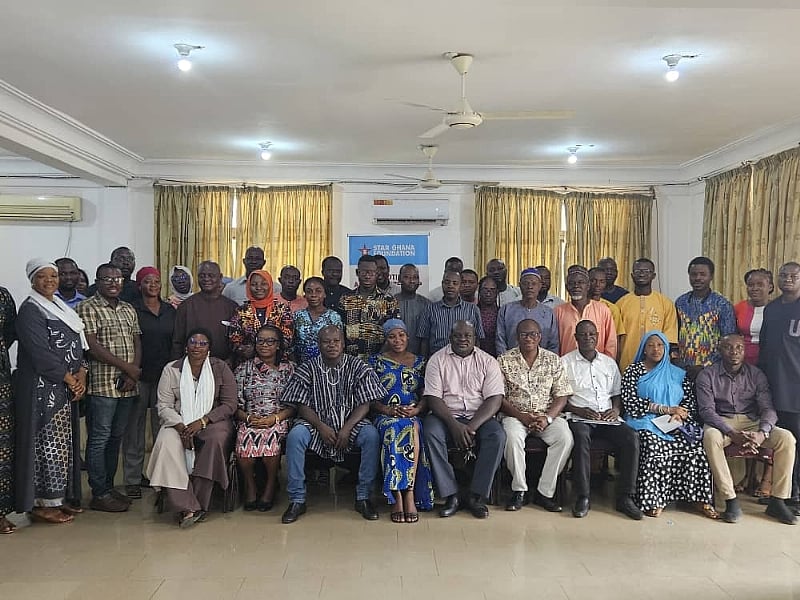Paragraph 1: The Call for Inclusive Development Planning
Civil Society Organizations (CSOs) in Ghana are advocating for a participatory approach to the development of the Medium-Term Development Plan (MTDP) for 2026-2029. They emphasize the crucial role of stakeholder engagement, from local communities to the highest levels of government, in ensuring that the plan effectively addresses the needs of all Ghanaians. This inclusive approach seeks to bridge service gaps and contribute to the achievement of the Sustainable Development Goals (SDGs), aligning national development with global aspirations. The CSOs believe that by actively involving citizens, particularly those at the grassroots level, the MTDP can truly reflect the priorities and challenges faced by diverse communities across the country.
Paragraph 2: Decentralization and Local Ownership
Central to the CSOs’ call for inclusivity is the principle of decentralization. They argue that empowering Metropolitan, Municipal, and District Assemblies (MMDAs) to lead the planning process will foster local ownership and ensure that development initiatives are tailored to specific community needs. By engaging directly with local stakeholders, including community members, traditional leaders, and local government officials, MMDAs can identify key development priorities, assess existing service gaps, and formulate targeted interventions in areas such as economic development, social services, peace and security, and Water, Sanitation, and Hygiene (WASH). This decentralized approach promotes a bottom-up planning process, where development strategies emerge from the communities they are intended to serve.
Paragraph 3: STAR-Ghana Foundation’s Role in Facilitating Participatory Governance
The STAR-Ghana Foundation has taken a proactive role in promoting participatory governance in the MTDP process. Through its "Actions for Voice, Influence, and Inclusive Development (AVID)" project, STAR-Ghana is working to amplify the voices of marginalized groups and ensure their concerns are integrated into the national development agenda. The Foundation organized a series of regional workshops titled "Enhancing Participatory Governance: Influencing the MTDP for Inclusive and Sustainable Development" to facilitate dialogue between duty-bearers and citizens, fostering collaboration and shared ownership of the development process. These workshops provide a platform for discussing key development issues,sharing project implementation experiences, and formulating recommendations for the MTDP.
Paragraph 4: Regional Consultations and Stakeholder Engagement
To broaden participation and gather diverse perspectives, STAR-Ghana is conducting these consultative workshops in four regions: Accra, Kumasi, Bolgatanga, and Ho. Engaging with 30 MMDAs across these regions, the workshops aim to ensure that the MTDP comprehensively addresses the needs of underserved populations, including rural women, smallholder farmers, persons with disabilities, and those working in the informal sector. By bringing together representatives from various communities and sectors, these consultations foster a rich exchange of ideas and contribute to a more nuanced understanding of local development challenges.
Paragraph 5: Strengthening Collaboration and Ensuring Resource Allocation
The workshops also serve as a vital link between MMDAs and STAR-Ghana’s partners, fostering collaboration and information sharing. This collaborative approach aims to streamline the development and implementation of the 2026-2029 MTDP. Recognizing the importance of resource allocation for successful implementation, participants emphasized the need for adequate funding to support the planning and execution of development initiatives. Mr. Charles Akurugu, Acting Municipal Director for Savelugu Assembly, highlighted the challenge of resource constraints and advocated for the decentralization of both processes and resources to ensure effective implementation of the MTDP.
Paragraph 6: Amplifying Citizen Voices and Promoting Inclusive Development
Raymond Danso, Portfolio Manager at STAR-Ghana, underscored the organization’s commitment to empowering marginalized communities and amplifying their voices in the policy-making process. STAR-Ghana focuses on building the capacity of underserved groups to advocate for their rights, influence decision-making, and hold duty-bearers accountable. By facilitating dialogue between citizens and government officials, STAR-Ghana aims to ensure that the MTDP reflects the priorities and concerns of all Ghanaians, promoting inclusive development and contributing to improved access to quality goods and public services. This collaborative approach fosters a sense of shared ownership of the development agenda and strengthens the link between policy formulation and the lived realities of communities across the country.














